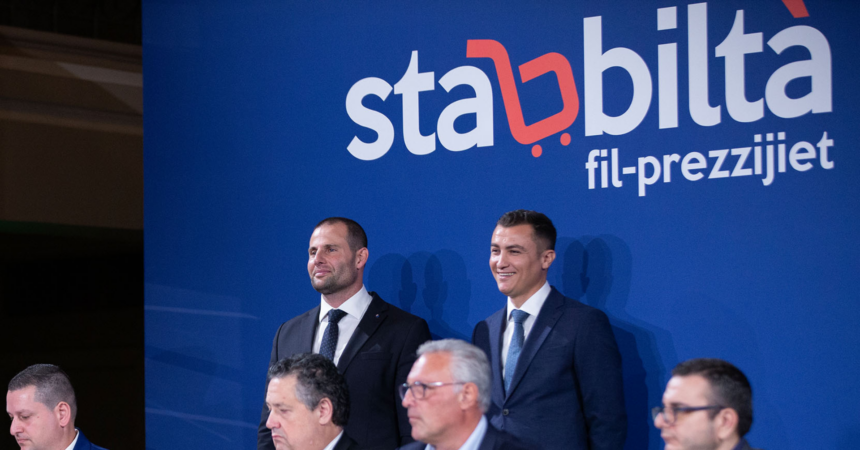The government has spent some €130,000 to promote the Stabbiltà food price cuts scheme with the majority, some €80,000 directed to media houses, TV channels and public relations firms, according to information tabled in parliament on Monday.
Tens of thousands of taxpayer funds were also spent on creating a basic website, promotional conferences, and scheme coverage. Economy Minister Silvio Schembri did not divulge details on the costs of government subsidies given to small shops participating in the scheme to offset losses.
From this month, the scheme introduced 15% price reductions for basic foodstuffs compared to their recommended retail price. More than 400 shops signed up for the government partnership, which is expected to last until the next budget, some ten months.
In response to a parliamentary question by PN MP Ivan Castillo asking for the total costs of the scheme, Schembri listed the costs for the promotion of the government initiative.
Out of €132,110, the majority, some €80,000, were spent on advertising. The minister named several media houses and public relations companies, but a breakdown of the costs was not provided.
Malta Today, The Times of Malta, The Malta Independent, ONE, NET, Lovin Malta, Malta Daily, PBS, F Living, Street Media, Bay Radio, Vibe Radio, Calypso Radio and Acting Services all received government funds to advertise the scheme.
Another €21,000 was spent on creating a website and an online app system for small shops, while the press conference and media briefing cost taxpayers almost €17,000. A further €14,000 was spent on stickers and informational services.
As part of the scheme, small shops, defined as those selling less than €800,000 worth of items per year, receive a monthly €125 subsidy.
Supermarket chains such as Welbee’s, PAVI/PAMA, and Greens have been named partners in the scheme, but the number of small shops receiving subsidies to offset the costs of their price reductions remains unclear.
The scheme was launched as a reaction to persistently high food costs despite dips in inflation, which has posed a significant problem for consumers.
Schembri’s response to the parliamentary question compared the scheme to other government initiatives to quell inflation, such as its controversial energy subsidies that have been criticised for their cost to state coffers.
Earlier this month, Schembri refused to publish a copy of the government’s agreement with businesses for the Stabbiltà scheme, claiming commercial sensitivity.
Last month, The Times of Malta reported large chains had already offered such discounts on staple food items, raising questions about the scheme’s effectiveness.
Social media comments reacting to the scheme raised questions about the government’s heavy-handed promotion of the scheme.
Many complained about the limited selection of foods included in the scheme, often processed or shelf-stable items not locally produced.
Others quipped about how “the price of a couple of items was reduced while prices for others skyrocketed.”
The Malta Chamber of Small and Medium Enterprises (SMEs) and the Malta Chamber of Commerce have criticised the scheme for its interventions on the free market.
Individual businesses’ reaction to the scheme has been mixed, with concerns raised on the government’s “take it or leave it” approach ahead of its launch.














